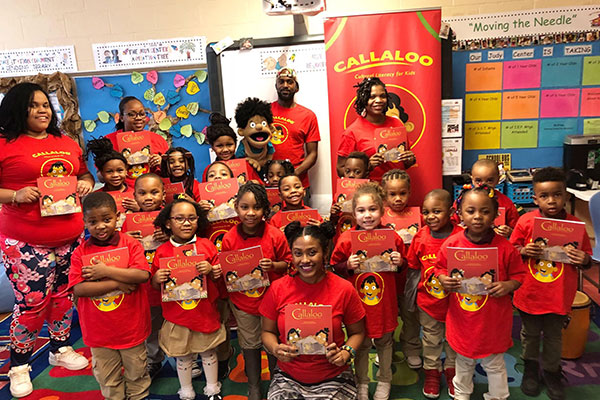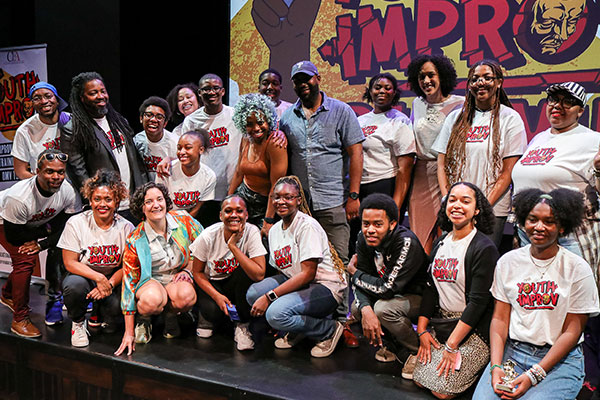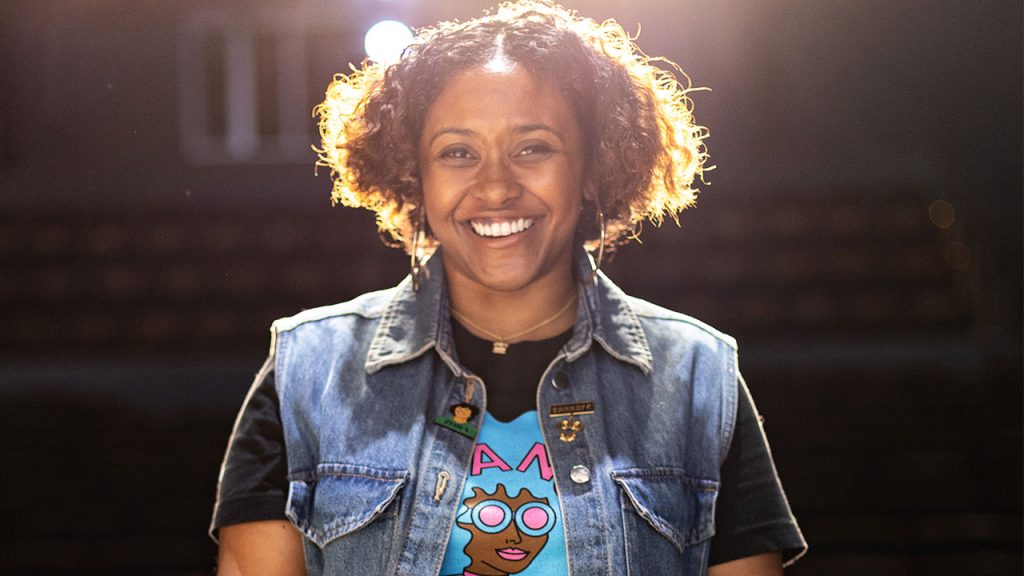For Marjuan Canady, to be a working artist is to be an entrepreneur. Since graduating from Fordham College at Lincoln Center in 2008 with a degree in theatre and African and African American studies, she’s gone from a sole focus on acting to creating a production company, starting a nonprofit arts foundation, and making her own work as a writer, performer, educator, and producer.
Beyond her own projects—including Callaloo, a children’s book and media brand that got the attention of PBS Kids—she’s been making her mark on Broadway as a co-producer of shows such as The Wiz and the Alicia Keys musical Hell’s Kitchen, for which she and her fellow producers were nominated for a 2024 Tony Award.
Tell me about how you got into acting and how you found your way to Fordham.
I grew up in D.C. My mom is from Trinidad, and my dad is African American. At home, the arts and storytelling were celebrated. I studied musical theater in high school at Duke Ellington School of the Arts, and the dream was to come to New York and be on Broadway.
What intrigued me about Fordham was the fact that you could double major. I was interested in so many different things that I didn’t want to just go to an acting conservatory. I was very invested in the Fordham Theatre program itself and how the University could help me grow.

Did your thinking about your career change during college?
I wasn’t coming out of Fordham saying, “I want to own my own business.” I wanted to be an actor. For about a year after graduating, I auditioned and hustled, and I found that I wanted to do other things. Fordham taught me a lot with my extracurricular involvement. I was part of the Black student club, and a lot of the skills that I was learning—building out events, budgeting, marketing events, bringing an audience together, cross-collaboration with other student clubs—those were all skills that taught me how to produce.
Tell me about your production company, Sepia Works. What has the trajectory been like?
The growth has been incredible. The company started with my one-woman play Girls! Girls? Girls., which took me out to LA and I started doing more film and TV work. My second piece, Callaloo, started off as a play but then turned into a book series and a show with puppetry. Then these bigger companies—Sesame Street, PBS Kids—started calling. And because I was creating my own stories and my own narratives, I had more power in the room.
Why did you decide to start the Canady Foundation for the Arts?
I realized that Callaloo was impacting young people, and we needed more support in the nonprofit space to serve children with literacy and early child development work. The foundation has also grown exponentially since 2015. We now have a staff, we have ongoing programming. We serve young people from 3 all the way to 18. Partnership and collaboration have been such a huge part of the growth.
What does your average day look like?
Every day is different, and I love that. But my days are made up of routine: I get up, I get my daughter to school, I work out in the morning, and then I try to schedule something. I have to have some type of structure. Being a mom also has forced me to prioritize and to know that at a certain time, I have to stop working. I can’t work the way that I worked in my 20s.

How do you balance not only the work but those parts of your identity—thinking like both an artist and an entrepreneur?
Honestly, it’s very hard. And it took me a long time to figure out my workflow and my balance. I would say at this point in my life, I have an amazing team that can manage a lot of the business stuff for me, but in the early stages, I did everything. And I think that makes the best leaders. You have to be able to have a grasp of every role, and be able to roll your sleeves up and do the work. And I think you also just have to carve out time to rest and to focus on your craft.
At times when I get overwhelmed, I like to step back and take time for gratitude and acknowledge that there’s creativity in everything that is going on in the room, whether it’s the business side or the actual creative side. That’s what makes it fun.
Interview conducted, edited, and condensed by Adam Kaufman, FCLC ’08.

